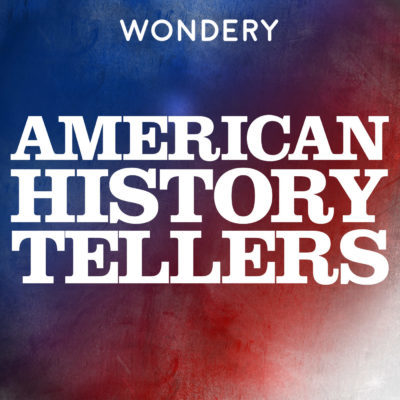INTERVIEW: ‘American History Tellers’ dives into engaging lessons

The new Wondery podcast American History Tellers explores the many different facets of the engaging lessons from the American history books. The ambitions for the audio project are grand and include episodes on the Cold War, Prohibition, Texas, national parks and many other areas.
At the center of the new podcast is Lindsay Graham, the host of the series. On each episode he takes listeners on a journey into chapters of American history that are often overlooked or unknown.
Recently, Hollywood Soapbox spoke with Graham, no relation to the senator, about the new podcast. Here’s what he had to say:
On what listeners will enjoy each episode …
“American History Tellers tries to be an educational and informative and immersive audio experience. We try really hard to not only be engaging and entertaining and a good listener, but tell the story of American history through the eyes of ordinary, everyday Americans. So we kind of put an emphasis of not looking at the top-level of history — President X did Y — but really drill down and say what the impact of that was for everyday Americans in 1766 or 1865 or 1965.”
On how the podcast is structured …
“There’s arcs or concentrations. The first concentration is the Cold War, and we’ll do six to eight episodes on that. And then we’ll move on to the Prohibition, and we have plans to move on to early revolutionary history and the history of Texas, the history of national parks, space race. So even though America is a relatively young nation, there’s so much to dig into. This is kind of the formula we’ve landed on to do that.”
On backing up the podcast with expert details …
“We engage quite a few historians with PhDs in their subject matter, so we’re dealing with experts. The real struggle if there is one is making sure it’s adapted to an audio format well. A teaching PhD historian probably might write for lectures but doesn’t really write for podcasts, and so that exploration and back and forth has been maybe the only obstacle. But the coordination between the subject-matter experts and the production team at Wondery and what I’m able to bring to it on an audio sense has been pretty seamless, so it’s been a good experience.”
On choosing the Cold War for the first concentration …
“Well, when Hernan Lopez, CEO of Wondery, first brought this idea to me, he asked, what should we start with. I guess this was mid-last year, July-ish, and the Cold War was immediately apropos for all the obvious reasons. Headlines are filled with accusations of Russian meddling and nuclear tensions on the Korean peninsula and Congress investigating American citizens for this and that. The parallels are obvious and unfortunate, so I think also the Cold War is just … both nostalgic for people like me who grew up in the ‘80s but also to have been forgotten how terrifying that period was and what it means to confront a new nuclear adversary. So it seemed the right topic.”
On how the researching and recording process develops …
“Let’s presume that we’ve decided what we want to talk about. Certainly conversations go on about that. We’ve decided on the Cold War, so first we had to find an expert on the Cold War. This is the case when we found Audra Wolfe, who wrote a book called Competing With the Soviets. Her particular expertise is in the technology and the science of the Cold War, so that informs the story we’re telling.
“And then she will begin writing scripts, and then we and the producers at Wondery will go back and forth and make sure that they hopefully sound good, that they have an ear to them. And once we’re happy with the direction of the scripts, then I’ll receive a final version and just sit down in front of a microphone and start talking. It takes me probably about 90 minutes to get through a 40-minute podcast with all of the mistakes I make, and sometimes I have to stop and rearrange a sentence either because I just can’t get it out of my mouth right or it just doesn’t land on the ear correctly.
“Then we go into post-production. Then it’s a matter of taking that raw audio and editing it down to something that’s intelligible and hopefully tells a story. Then it goes into post-production with the insertion of sound effects and the sound design and the music, and then it goes into mastering. Then we’ll have review with the network, Wondery, and make some edits and changes. That’ll go through, so it’s an involved process.”
By John Soltes / Publisher / John@HollywoodSoapbox.com
American History Tellers is now available from Wondery. Click here for more information.

